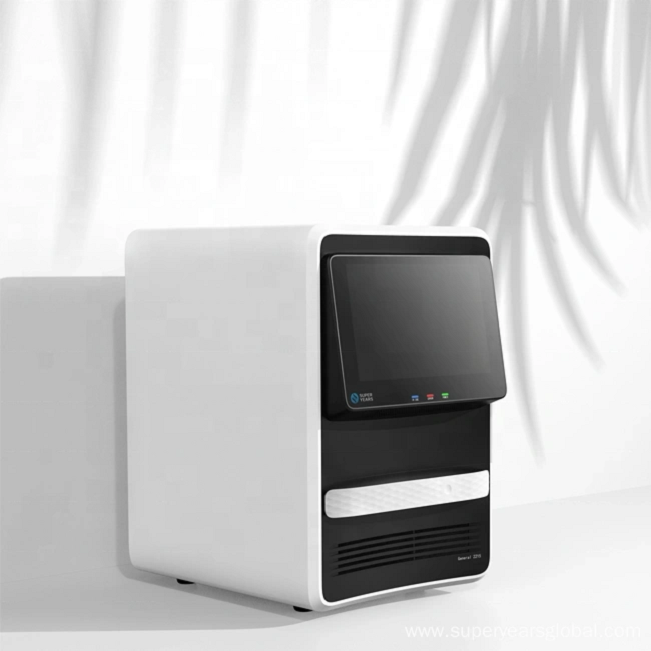
Privacy statement: Your privacy is very important to Us. Our company promises not to disclose your personal information to any external company with out your explicit permission.
5. Mutation Detection: Real-time PCR is employed to detect and analyze specific mutations associated with genetic disorders or cancer. It helps in identifying genetic markers and assessing disease risk.
PCR System Display

April 18, 2024
Mail a questo fornitore
April 18, 2024
April 23, 2024
April 23, 2024
Invia domanda

Mr. Mr. Leon Wen
Numero Di Telefono:0086-025-57561788
Fax:
Mobile:+8619871200893
E-mail:wenjiajun@superyears.com
Azienda Indirizzo:Nanjing, Jiangsu
mobile Site


Privacy statement: Your privacy is very important to Us. Our company promises not to disclose your personal information to any external company with out your explicit permission.

Fill in more information so that we can get in touch with you faster
Privacy statement: Your privacy is very important to Us. Our company promises not to disclose your personal information to any external company with out your explicit permission.